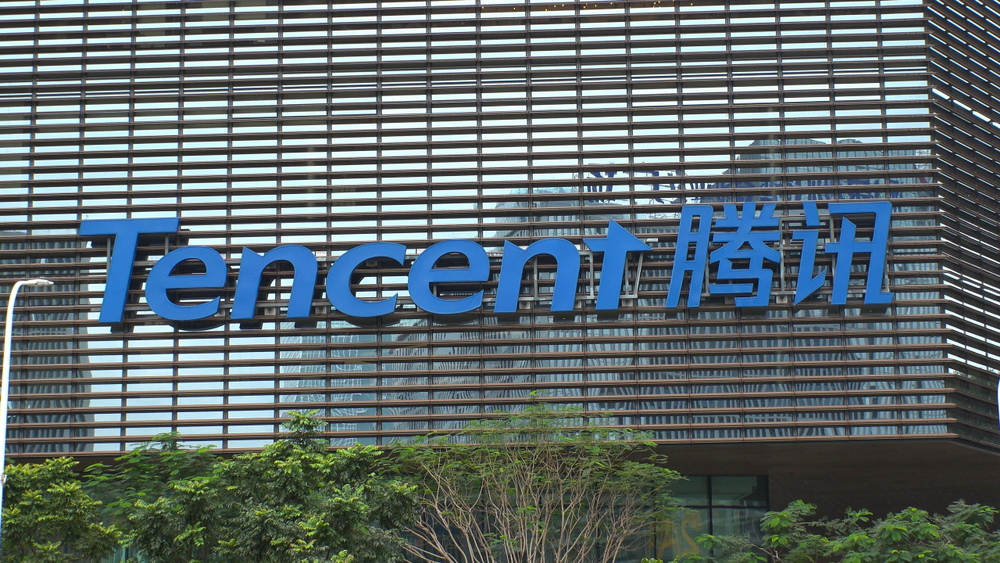Chinese internet giant Tencent Holdings, one of the most active investors in the technology world, has significantly scaled down on investments this year after a bullish investing spree in 2018.
As a tech rout spread through the world this year, the Shenzhen-based company put money into 108 deals globally, 33% fewer than the 162 deals in 2018, according to Chinese research firm IT Juzi, whose data is widely cited by both local and overseas media. Tencent also invested less than half the amount of money in total this year – 34.3 billion yuan (USD 4.9 billion) compared to 72.7 billion yuan (USD 10.36 billion) in 2018.
Tencent’s shrinking investments are in line with China’s overall decline of venture capital activity this year, amid the country’s economic slowdown and uncertainties about the ongoing US-China trade war. In 2019, Chinese companies raised USD 35.6 billion over 2,047 rounds of funding from January to mid-November, compared to USD 93.4 billion from 2,795 rounds over the same period in 2018, according to Crunchbase in November.
This follows earlier indications that Tencent was moderating its investment strategy after what the company’s president Martin Lau has called its “best year” in 2018.
In February, Lau launched a robust defence of the company’s practice of taking stakes in hundreds of companies in response to an online essay questioning whether the company was “losing its dream” by driving growth through investments rather than original innovation.
Speaking at a company event, Lau said investment was part of the Chinese internet giant’s core strategy. “Investing allows us to focus on the most important, the platform business, and make it the best,” he said, adding that Tencent invests in companies with a variety of expertise which helps it collaborate with a larger ecosystem, exposing it to opportunities in new areas.
But after a bumper crop of good investments in 2018 – 16 of the companies it backed went public, including anime site Bilibili, music streaming service Spotify and game-centric live-streaming platform Huya – “it turned sharply downward from a hot summer to a cold winter”, Lau said.
“I think we are facing bigger challenges in 2019 in the short term,” he added, although he stated emphatically that the company would not reduce its level of investment.
But by August, Tencent’s chief strategy officer James Mitchell confirmed that the company’s investments had “slowed quite notably” in the first half of the year.
“The amount of capital we’re deploying into investments has decelerated after an unusually rapid pace in the first half of 2018 when we were investing in smart retail and game broadcast sites,” Mitchell said in a conference call with analysts. “Overall, we will continue to invest at a more measured pace than at the beginning of last year.”
In 2019, Tencent has invested in companies ranging from health care to finance and e-commerce. One-fifth of its investments were in enterprise services, reflecting the company’s pivot towards a greater focus on industrial internet since last year. Early this year, Tencent led investments into Chinese e-commerce service provider Youzan and Bengaluru-based digital banking company NiYO.
While the company has announced its intention to diversify away from heavy reliance on video games, social media, and entertainment, it also continued to invest in the Chinese game-streaming platform Xiaoxiang Huyu this year and completed a deal to invest in San Francisco-based discussion website Reddit.
Tencent declined to comment on its investment strategy for this story.
Other major Chinese tech giants have also cut back on their investments this year amid harsh global conditions. For example, Chinese e-commerce giant Alibaba Group (which owns the South China Morning Post) invested 71 billion yuan (USD 10.12 billion) in 37 deals in 2019 compared to 80 billion yuan (USD 11.4 billion) in 62 deals the previous year.
“Most Chinese internet companies have been trying their best to control costs (this year), or more accurately to control cash outflows,” said Chinese equities analyst Ming Lu from Aequitas Research, who also writes for fintech platform Smartkarma. “Alibaba, JD.com, Meituan – no exception.”
However, Lu said that Tencent’s reasons for cutting costs were different from its competitors – its main revenue source, video games, was hit by a nine-month freeze on game license approvals by Chinese regulators in 2018, leaving it with limited cash flows for investments this year.
With the authorities approving licenses for its games again this year and its operating cash flows increasing by 28% year-on-year in the first three quarters, Tencent may be the first of the large Chinese tech companies to restart aggressive investments in 2020, Lu added.
